As President Ahmed al Sharaa hopes to seize his “opportunity for peace” in Syria, factions within the post-revolution nation threaten to tear it apart before the new era can even begin.
From ethnic militaries to religious minorities, a variety of movements are percolating in Syria, seeking to grab autonomy from Damascus.
Most prominent among the threats to continued national unity is the Kurdish-led Syrian Democratic Forces, a militia of over 100,000 soldiers that controls vast swaths of the country’s northeast.
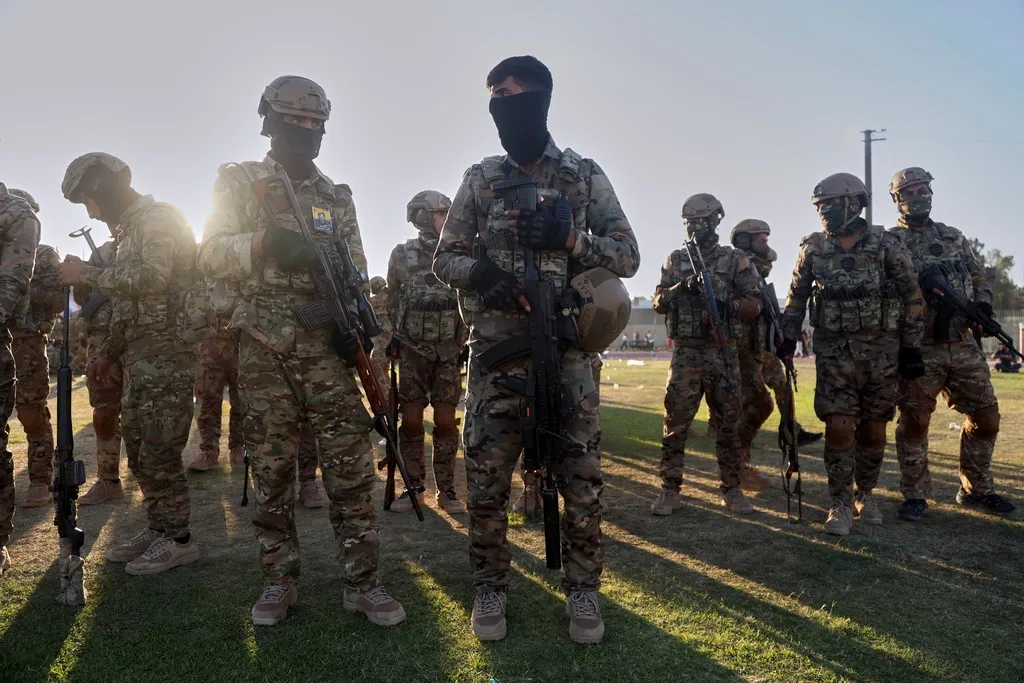
The SDF is primarily composed of the People’s Defense Units (YPG), a Kurdish militant group that was one of the United States’s most prominent allies in combating the Islamic State since 2013. Its presence in the region is a source of tension due to its alleged connections with the Kurdistan Workers’ Party, a Marxist-terrorist group that has long waged a violent insurgency against neighboring Turkey.
Despite ideological concerns, the U.S. backed the SDF for years as the preferred opposition to former dictator Bashar al Assad.
When Sharaa’s forces, Al-Nusra Front, swept through the Assad regime’s military and took control of Syria, the SDF was left in an uncomfortable limbo, occupying approximately 30% of the nation but no longer justified in its power without the dictator to oppose.
The Syrian president struck a deal with the SDF in March that aims to integrate the SDF and its regional infrastructure into the national government and its Syrian Armed Forces, but negotiations on implementing that plan are deteriorating due to disagreements on the level of autonomy the Kurdish organization will maintain.
“There are negotiations, but both sides are blaming each other for how the implementation of the March agreement is stalling,” Ahmad Sharawi, a research analyst focusing on Syria at the Foundation for Defense of Democracies, told the Washington Examiner. “We’re nearing the deadline — which is in December — to finalize the whole integration process. And if they don’t reach an agreement or an implementation plan by December, then I think the military option will be triggered.”
But the “military option” for combating the SDF would most likely come from outside Syria’s borders.
Turkish President Recep Tayyip Erdoğan remarked on Wednesday at the United Nations that his country is prepared to do whatever is necessary to prevent the SDF, which the Turkish government deems a terrorist organization, from splintering out of unified Syria.
“We have engaged all channels of diplomacy both to preserve Syria’s territorial integrity and prevent a terrorist structure from forming across our borders,” Erdoğan said at a U.N. event on Wednesday. “We continue to use these channels with patience, sincerity, and common sense.”
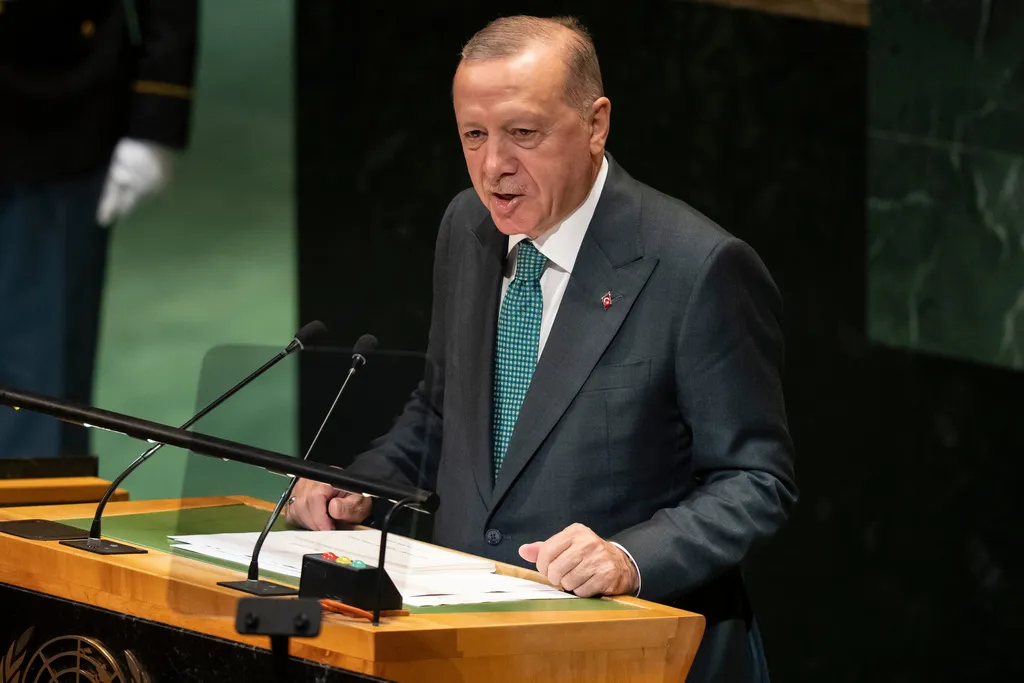
He continued, “If diplomatic initiatives are left unanswered, Turkey’s policy and position are clear. Turkey will not allow a déjà vu to take place in Syria.”
Dr. Mehmet Çelik, a Turkish political analyst and editorial director at the Daily Sabah, emphasized to the Washington Examiner that an SDF-controlled state on Turkey’s borders would be disastrous for national security.
“For [the Turkish government], the U.S.-backed and YPG-led SDF is no different than the [Kurdistan Workers’ Party], a group listed on terror list by the U.S. and the [European Union] and Türkiye,” Çelik told the Washington Examiner. “As such, the establishment of an autonomous entity along Türkiye’s southern border poses a threat to Türkiye’s security.”
In fact, any fragmentation in the fragile state of Syria could threaten cascading instability across the region as ethnic, religious, and racial factions scramble to secure autonomy outside the oversight of Damascus.
“A fragmented Syria would mean instability along its borders,” Çelik continued. “In other words, the source of many different problems which would then become issues for Türkiye, be it in security, economic, social and political areas. Türkiye favors territorial integrity of its neighbors and believes that any further fragmentation would create not only issues for Türkiye but long term risks for the region.”
The Druze community is preeminent among the minority faiths disgruntled by the Sharaa regime after an ethnic blood feud between themselves and local Bedouin tribes in Sweida province ballooned into a full-blown regional conflict.
Druze separation aspirations
The U.N. Office of the High Commissioner on Human Rights condemned the “targeted campaign against the Druze minority” and reported in late August that over 1,000 people had been killed in the sectarian violence, “including at least 539 identified Druze civilians – among them 39 women and 21 children.”
The office reported accounts of rape, looting, and extortion. It also noted that “at least 196 people, including eight children and 30 women, were reportedly extrajudicially executed and over 33 villages burned.”
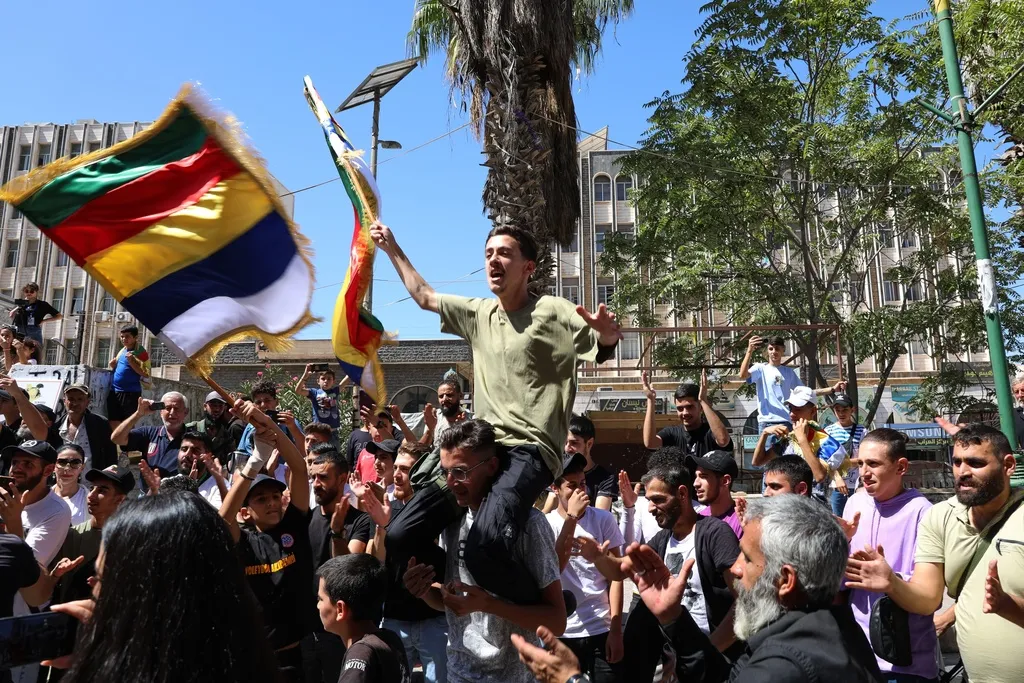
Due to the bloodshed that began this summer, which has not yet fully subsided, Druze spiritual leaders have appointed their own regional administration with the explicit goal of establishing a sovereign state for themselves in Sweida — a province they dominate despite being just 3% of the Syrian population.
Hikmat al Hijri, one of three sheikhs of the Druze community in Syria, has emerged as a unifying leader against Syrian control over Sweida.
“Hijri has basically managed to consolidate power inside Sweida and he became the most influential actor,” Sharawi told the Washington Examiner. “He was the person responsible for forming this local governing committee. And they also have unified military structure named the ‘National Guard’ that is also affiliated with this spiritual leader.”
Israel, a country with a significant Druze population often characterized as a model minority, has backed the Druze in Sweida since violence broke out earlier this year.
When Syrian Armed Forces personnel were deployed to the province to quell the Druze-Bedouin conflict, video emerged of soldiers harassing and demeaning Druze civilians. Israel’s response was a series of missile strikes on government buildings in Damascus, including the Presidential Palace and Ministry of Defense.
Sharaa eventually ordered his military out of the area and affirmed his support for the Druze as a community.
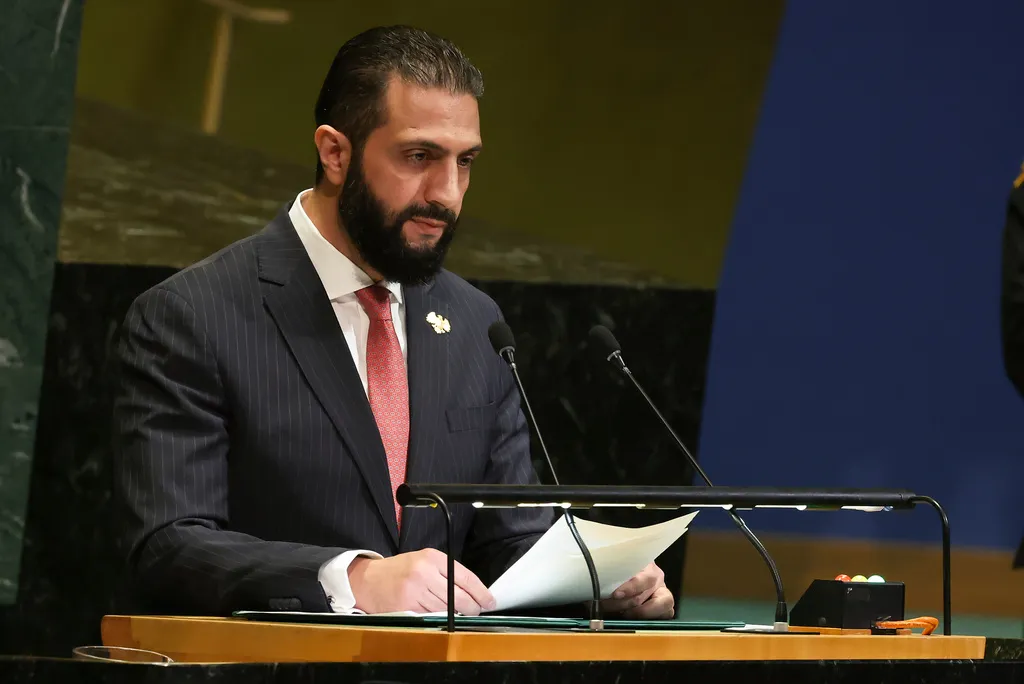
While the Druze are generally seen as a peaceful people and do not have institutional connections to terrorism like SDF, Turkey and other neighboring countries still see Sweida’s independence as a threat to the region due to the outpouring of similar movements that would likely follow.
“Of course, the fact that Israel is triggering fragmentation in Syria via Druze/SDF is also a concern for Türkiye,” Çelik told the Washington Examiner. “For Ankara, a united Syria is more inline [sic] with its regional stability aims and influence.”
He added, “Türkiye is very aware of a diverse Syrian society. If one group wants to separate the rest would follow in demands.”
Unlike in the scenario of an SDF land grab, Turkey would be unlikely to take military action against a hypothetical Druze breakaway. A Druze splinter state would lack both geographical proximity and a threat to Turkish national security.
Members of other minority groups might have similar goals of breaking off from Damascus, but lack the institutional resources necessary to seize power in their region.
The Alawites, an Arab religious group that practices a distinct offshoot of Shia Islam, make up approximately 15% of the Syrian population.
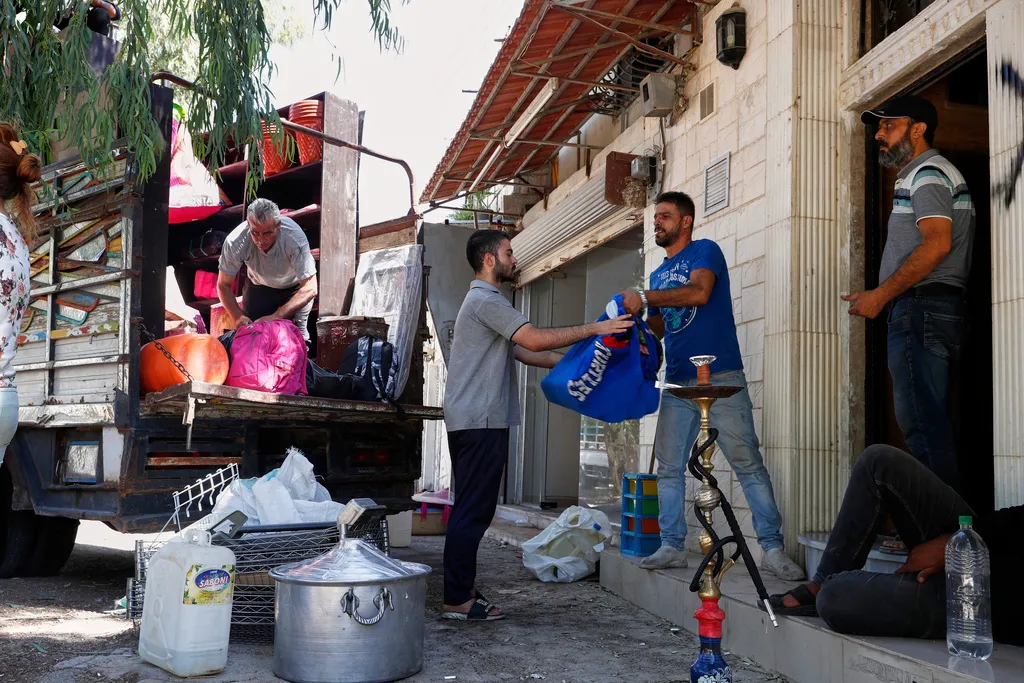
SYRIAN PRESIDENT GETS STAR TREATMENT AT UN AS COUNTRY IS WELCOMED BACK AFTER YEARS ON THE OUTSKIRTS
They have strong ethnic bonds and thrived under the secular regime of Assad, who was himself an Alawite who sought to preserve the rights of minority religions during his reign. However, unlike the much smaller Druze community, Alawites do not maintain control over cities and infrastructure in their highest density areas.
This lack of organization and resources, as well as resentment built up during the Assad years, has led to a spate of persecutions against Alawites across the country.
